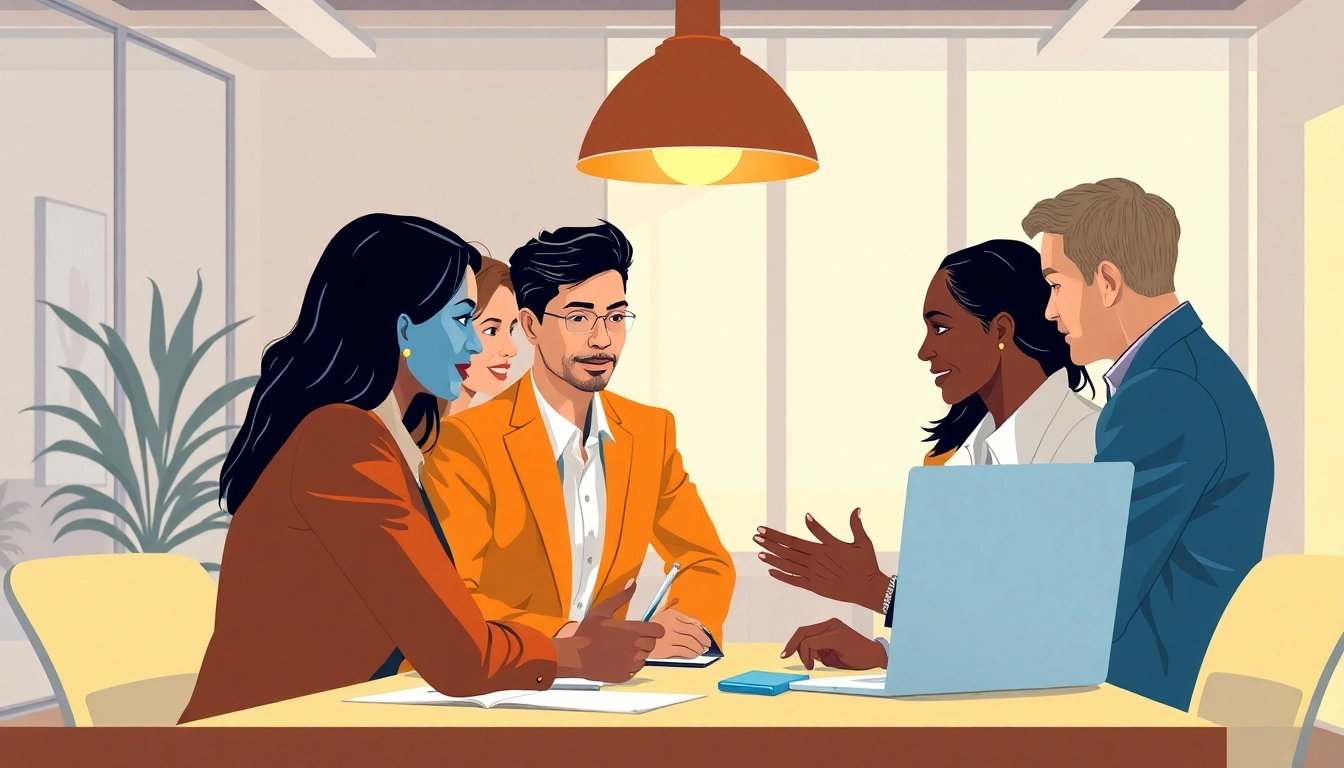Experienced Florida Car Accident Attorneys: Your Guide to Navigating Legal Challenges
Understanding the Role of Florida Car Accident Attorneys
Car accidents can be overwhelming, leading to emotional distress, physical injuries, and financial turmoil. In Florida, navigating the legal complexities following a car accident requires an understanding of the laws, insurance claims, and your rights as a victim. This is where Florida Car accident attorneys play a crucial role. They not only provide legal support but also advocate for your best interests in a challenging time.
What Do Florida Car Accident Attorneys Do?
Florida car accident attorneys specialize in representing individuals involved in vehicular accidents. Their primary responsibilities include:
- Legal Representation: Attorneys represent their clients in negotiations with insurance companies and, if necessary, in court to ensure that their rights are protected.
- Claim Evaluation: They assess the specifics of each case, determining the viability of claims based on the evidence gathered, such as police reports and medical records.
- Gathering Evidence: Effective representation often hinges on having access to critical evidence. Attorneys compile necessary documentation to support their client’s case, including accident photos, witness statements, and expert testimonies.
- Calculating Damages: Attorneys evaluate the extent of damages suffered, including medical expenses, lost wages, and pain and suffering, to ensure that clients receive appropriate compensation.
- Negotiation: They engage in negotiations with insurance providers to secure the maximum possible settlement for their clients.
- Representation in Court: If a fair settlement cannot be reached, attorneys are prepared to represent their clients during court proceedings.
Why Hire a Florida Car Accident Attorney?
The decision to hire a Florida car accident attorney can significantly influence the outcome of your case. Here are some reasons to consider legal representation:
- Expert Knowledge of Florida Law: Attorneys possess a thorough understanding of Florida’s laws concerning traffic accidents and personal injury, which can be critical in building a strong case.
- Experience with Insurance Companies: Insurance companies often aim to minimize their payouts. Attorneys have experience countering the tactics employed by insurers to protect their client’s rights.
- Peace of Mind: Handling the legal aspects of an accident can be stressful. Attorneys take that burden off your shoulders, allowing you to focus on recovery.
- Improved Compensation: Studies show that individuals represented by attorneys often receive higher settlements than those who represent themselves.
Key Qualifications to Look for in an Attorney
When seeking a Florida car accident attorney, consider the following qualifications:
- Experience: Look for an attorney with extensive experience in personal injury law, specifically in handling car accident cases.
- Track Record: Evaluate their success rate in securing favorable outcomes for their clients. Reviews and testimonials can provide insight into their reputation.
- Specialization: Attorneys specializing in cases similar to yours often have a better grasp of relevant legislation and case precedents.
- Communication Skills: An effective attorney is one who communicates clearly and keeps you informed throughout the legal process.
- Approachability: Choose an attorney that makes you feel comfortable discussing personal and potentially sensitive issues.
Common Types of Car Accident Cases in Florida
Florida’s diverse roadways and traffic patterns give rise to various types of car accidents. Understanding these can help tailor your legal strategy if you find yourself involved in such an incident.
Understanding Negligence in Florida Car Accidents
Negligence is a fundamental concept in personal injury law. In Florida, to establish a claim, the plaintiff must demonstrate that the defendant owed a duty of care, breached that duty, and caused the resultant injuries. Common examples include:
- Distracted Driving: This includes texting, talking on the phone, or engaging with in-car technology while driving.
- Driving Under the Influence (DUI): Intoxication impairs judgment and reaction times, leading to dangerous driving behaviors.
- Speeding: Driving at excessive speeds can increase the severity of collisions and the likelihood of accidents.
- Reckless Driving: Aggressive maneuvers, such as tailgating or lane changing without signaling, can endanger other drivers.
Evaluating Car Accident Injury Claims in Florida
Evaluating injury claims involves several critical steps:
- Establishing Liability: Determining who was at fault for the accident is crucial. This may involve reviewing police reports, witness statements, and video footage.
- Medical Documentation: Proper medical records must be obtained to justify and quantify the injuries and treatment received.
- Calculating Economic and Non-Economic Damages: This includes expenses such as medical costs, lost income, and compensation for pain and suffering.
- Consideration of Comparative Fault: Florida follows a comparative fault rule where the damages awarded may be reduced if the injured party is found to be partially at fault for the accident.
Analyzing Different Types of Florida Traffic Collisions
Understanding the types of collisions can provide crucial insights into the legal processes involved:
- Rear-End Collisions: These are common in Florida due to heavy traffic. The driver who rear-ends another vehicle is usually found at fault.
- Side-Impact or T-Bone Accidents: Often occurring at intersections, these collisions can result in severe injuries due to the lack of protective barriers.
- Head-On Collisions: These types of accidents often result in catastrophic injuries or fatalities, as they involve cars traveling in opposite directions.
- Single Vehicle Crashes: When a driver loses control and crashes into a barrier or another stationary object, factors like road conditions or equipment failure may come into play.
Steps to Take After a Car Accident in Florida
Knowing what to do following a car accident can significantly impact your case. Here’s a step-by-step guide:
Immediate Actions Post-Accident: A Checklist
Immediately after a car accident, follow these steps:
- Check for Injuries: Ensure everyone is okay. Call for medical assistance if anyone is hurt.
- Move to Safety: If possible, move vehicles to the side of the road to avoid further accidents.
- Call Law Enforcement: Reporting the accident is vital for documentation purposes.
- Exchange Information: Collect contact details, insurance information, and vehicle identification numbers from other parties involved.
- Gather Witness Information: Names and contact details of witnesses can be invaluable.
Documenting the Accident: Essential Evidence
Collecting evidence after the accident is crucial for building your case:
- Photographs: Take photos of the scene, vehicle damage, and any injuries sustained.
- Police Reports: Obtain a copy of the police report as it often contains important details about the accident.
- Medical Records: Keep all documentation related to medical treatment and expenses incurred as a result of the accident.
When to Contact a Florida Car Accident Attorney
It’s advisable to contact an attorney as soon as possible after the accident, especially if:
- You have sustained serious injuries.
- Liability is disputed among parties involved.
- You feel overwhelmed by the insurance claims process.
- There are potential complications with your medical treatment or recovery.
Finding the Right Florida Car Accident Attorney for Your Case
Finding the right attorney is crucial for ensuring a favorable outcome in your case. Here are steps to consider:
Evaluating Lawyer Experience and Track Record
Research potential candidates by:
- Checking Credentials: Review their education, professional affiliations, and certifications.
- Consulting Online Reviews: Look at testimonials and ratings from past clients to gauge satisfaction with their services.
- Reviewing Case Results: Inquire about past case outcomes to see their success rate and the types of cases they’ve won.
Questions to Ask Before Hiring an Attorney
Prior to hiring, ask potential attorneys the following:
- What is your strategy for my case?
- How do you charge for your services? (Fee structure)
- Will you personally handle my case?
- What is your experience with similar cases?
- How often will you update me on my case status?
Understanding Fee Structures and Payment Options
Familiarize yourself with common fee structures among Florida car accident attorneys:
- Contingency Fees: Many attorneys work on a contingency fee basis, meaning they only get paid if you win your case.
- Hourly Rates: Some attorneys charge by the hour, which may vary significantly based on their experience and reputation.
- Flat Fees: For specific services, some attorneys may offer a flat fee.
Maximizing Your Compensation with Effective Representation
Effective legal representation can significantly influence the compensation you receive. Here’s how to maximize your settlement:
How Attorneys Negotiate with Insurance Companies
Attorneys are adept negotiators. They understand the tactics insurance companies may use to undervalue claims and are skilled at countering these efforts. Their strategies often include:
- Presenting Thorough Evidence: A well-documented claim can lead to better initial settlements.
- Understanding Your Needs: Attorneys take the time to understand the long-term impacts of your injuries, ensuring that compensation reflects future needs.
- Building a Strong Case: By substantiating claims with evidence, attorneys can compel insurers to take claims more seriously.
Common Mistakes to Avoid After an Accident
Being aware of common pitfalls can prevent you from jeopardizing your claim:
- Admitting Fault: Avoid speaking about fault at the scene. Liability is best determined by law enforcement and legal professionals.
- Not Seeking Medical Attention: Failing to get medical care can complicate your case and lead to questions about the seriousness of your injuries.
- Delaying Legal Action: Florida has a statute of limitations (typically four years) for personal injury claims. Prompt action is vital.
Measuring Success: Key Performance Indicators of a Good Outcome
Understanding success in your case can be gauged by:
- Settlement Amount: A successful outcome typically involves compensation that adequately covers medical bills, lost wages, and damages.
- Timeframes: An efficient resolution process reflects the attorney’s effectiveness in managing your case.
- Client Satisfaction: Ultimately, a successful outcome should leave the client feeling content with both the process and the result.














Post Comment